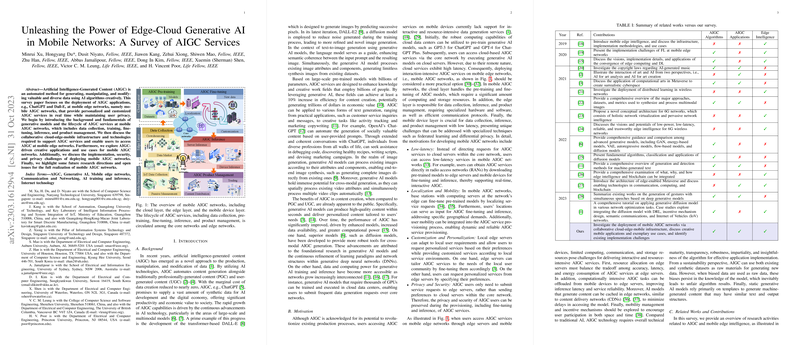Federated Learning in Mobile AIGC Networks
Overview
Federated learning (FL) plays a pivotal role in the field of mobile Artificial Intelligence-Generated Content (AIGC) networks. By enabling decentralized data training while preserving user privacy, FL overcomes the hurdles associated with centralized data storage and processing. In mobile AIGC networks, FL algorithms allow for collaborative model training across numerous devices, leading to enhanced models that benefit from diverse data sources without the need to transfer sensitive data off-device. This approach not only shields user privacy but also slashes the bandwidth required for data transmission, making it a gamechanger for AIGC applications.
Secure Aggregation and Differential Privacy
Two core FL strategies are pivotal for ensuring data privacy in mobile AIGC networks: secure aggregation and differential privacy. Secure aggregation employs encrypted communications to prevent FL servers from accessing individual updates, thus maintaining data confidentiality during model aggregation. Differential privacy adds controlled statistical noise to the data or model updates, obscuring individual contributions while allowing statistical patterns to be learned. These strategies are crucial for mitigating the risks of sensitive data leakage during the AIGC model training process.
Challenges and Advancements
Whilst FL offers significant benefits for privacy preservation in AIGC, it still faces challenges such as non-ideal network conditions like latency and potential security vulnerabilities. Recent advancements address these concerns by optimizing federated algorithms to handle non-stationary network environments and improve model quality assessment, which is vital for offering high-value AIGC services. In particular, quality-aware incentive mechanisms are being researched to balance the trade-off between training time, model accuracy, and user incentives.
The Role of Blockchain
Blockchain technology is emerging as a powerful tool for system management in mobile AIGC networks. It offers robust methods for data administration, computing, and communication management. This decentralized architecture supports the recording of AIGC resource transactions and service agreements through smart contracts, enabling secure, transparent, and efficient management across network stakeholders. Notably, blockchain-integrated frameworks like proof-of-AIGC can combat issues like data plagiarism, further fortifying the integrity of AIGC products in mobile networks.
Future Directions
Future research will focus on enhancing FL frameworks for mobile AIGC networks while exploring novel applications. Work in this area includes further optimization of privacy-preserving techniques, investigation into consensus mechanisms for blockchain deployment, and development of more effective and less resource-intensive FL algorithms. As AIGC services continue to grow in complexity and application scope, advancements in FL will be instrumental in shaping the deployment strategies and ensuring the sustainable and secure expansion of mobile AIGC ecosystems.
